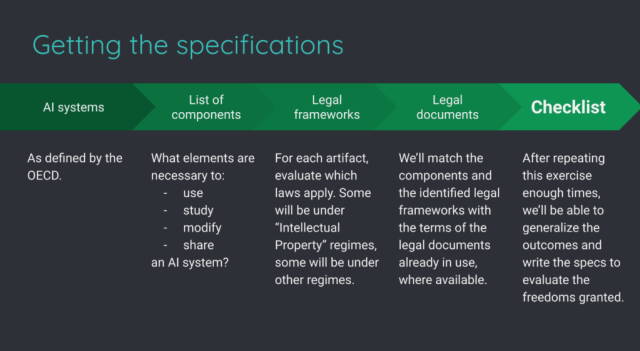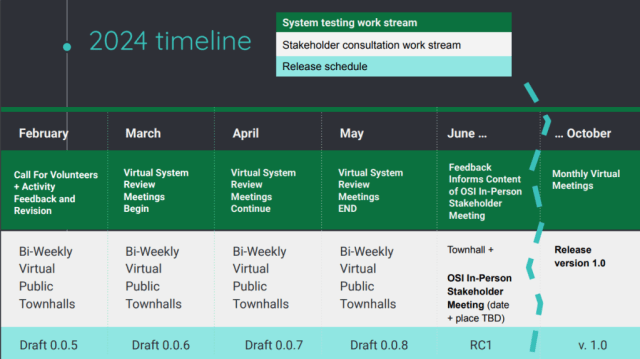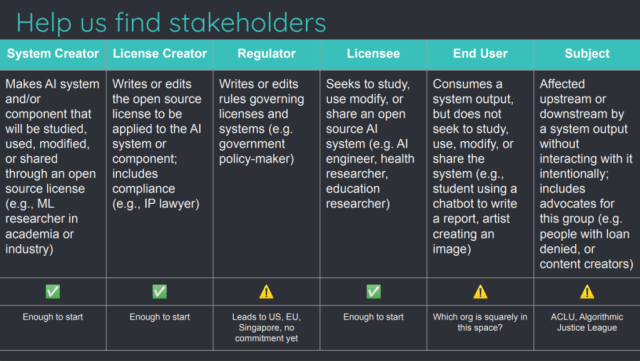Open Source AI Definition: Where it stands and what’s ahead
2023 was a big year of progress toward our goal of establishing a Definition for Open Source AI, but we still have a long way to go. Strong momentum of global collaboration toward this end will continue in 2024, and we need your help.
I detailed what we have accomplished and what lies ahead in a talk at FOSDEM and in the online public townhall meetings. There are more townhall meetings scheduled already, every two weeks at alternating times.
We began the drafting process by looking at the Free Software Definition during in-person and online sessions last year. The current draft v.0.0.5 of the Open Source AI Definition is as follows:
What is Open Source AI
To be Open Source, an AI system needs to be available under legal terms that grant the freedoms to:
From Open Source AI Definition draft 0.0.5
- Use the system for any purpose and without having to ask for permission.
- Study how the system works and inspect its components.
- Modify the system to change its recommendations, predictions or decisions to adapt to your needs.
- Share the system with or without modifications, for any purpose.
However, in order to get to the complete draft, we need to answer the following question: What is the preferred form to make modifications to an AI system?
The specification to consider are outlined in this diagram:

I also presented the 2024 timeline:

TL;DR is we are working toward an Open Source AI Definition release candidate 1 (RC1) by early summer and a version 1 (v. 1.0) in October. We have established working groups to analyze all the components of popular AI systems (like Llama2, Pythia, BLOOM, OpenCV), and new drafts of the Definition will be released monthly with town hall meetings every two weeks and constant public review.
RC1 must be supported by at least 2 representatives for each of the 6 stakeholder groups.
V. 1.0 must be endorsed by at least 5 representatives for each of the 6 stakeholder groups.
As this Definition is the first one maintained by OSI to have a version number, we will have rules for maintenance and review as the technical and legal landscape of AI continues to change. The Board started working on this task.
Following are the 6 stakeholder groups we have identified: Invite them to join the forum or tell them to email/contact me.

Next steps
- Bi-weekly townhalls to make the process more public.
- Outreach to get more stakeholders involved.
- Raise more funds to support this work in 2024.
- OSI is updating the project landing page and engaging the board in preparation for review and approval of v. 1.0 later this year.
Public draft along with comments are available from the redesigned landing page at https://opensource.org/deepdive/. We invite you to join the conversation, and don’t forget to become an OSI member!

Likes